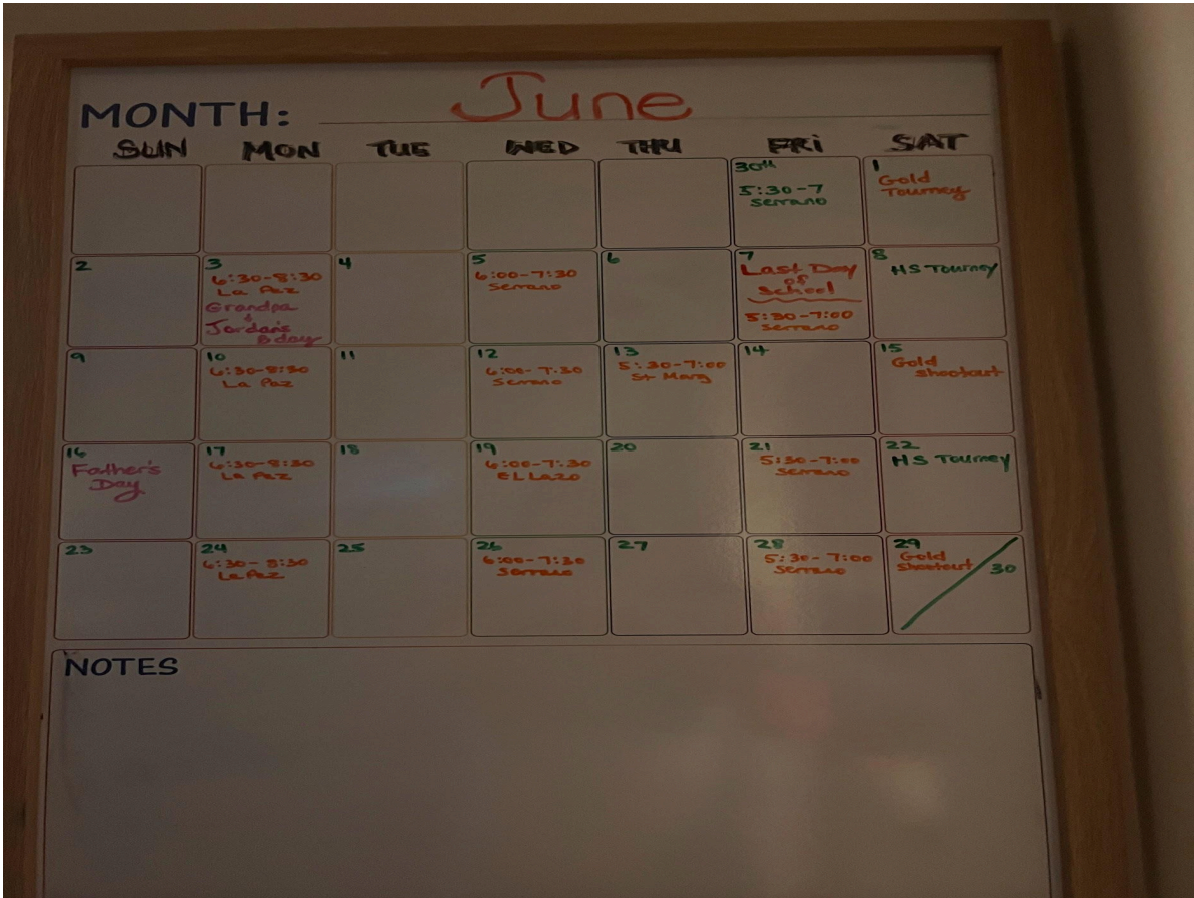Imagine it is the night of a deadline and you are staring at a blank screen. The deadline is hours away and you want to be anywhere, doing anything, but what you are doing right then. Your hands are sweating, your pulse is racing, and your mind won’t stop jumping from one place to the other. This is one of the few consequences of lack of self discipline. Self discipline is an important skill to practice in order to accomplish all types of goals, whether these be academic, social, or personal. In today’s world the need to tune out distractions and temptations becomes evermore urgent in order to meet deadlines and goals.
Self discipline is the ability to control one’s emotions or feelings in order to overcome difficult situations or weaknesses in the face of temptation. Self discipline is beneficial and can be used to accomplish many things including completing goals and reducing stress. Self discipline and intentional actions also play a large part in our overall happiness.
Freshman Natasha Buckley said, “Self discipline can benefit you because it helps you understand when you are wrong cand take responsibility for your actions.”
When you are self aware, you can make changes towards being more productive. Accomplishing goals that we have set for ourselves is one of the things that is most sought after. In order to effectively do this, however, self discipline is needed. Self discipline allows you to proactively remove temptation and avoid actions that could be impractical to accomplishing your goals. Along with removing temptation, you are also able to divert more consistent effort towards your goals in order to accomplish them.
Freshman Matthew Muir said, ”One time I didn’t do a school assignment throughout the week and then I felt very stressed when I had to do it in one night.”
Self discipline also reduces stress because by not being self disciplined you can cause yourself more stress. According to The Society for Personality and Social Psychology, “People who have greater self-control may be able to regulate their stressful thoughts more effectively, making those thoughts less intrusive and overpowering. On top of that, people with good self-control are better at putting themselves into situations that support their goals and emotional well-being.”
Because people with higher self control are able to regulate their emotions, they are able to regulate their stressful thoughts more effectively and divert consistent effort towards their most important or prioritized task. When people feel in control of their emotions and their actions, they are able to stop worrying and focus on the most important task.Intentional activity makes up almost half of your happiness.
According to the Greater Good Magazine, published by University of California at Berkeley, half of one’s happiness is determined by genetics, 10% by life circumstances, and 40% is within a person’s control — determined by a person’s intentional activity. If that person’s intentional activity is executed in a disciplined way, it can lead to greater happiness. The article notes that “people who invest more effort into their new habits,” in other words, exercise self discipline, “see greater improvements in their well-being.”
However, some people might say that self discipline is bad and that being overcontrolled can be bad for your mental health. This quote is from the University of Berkeley magazine called “The Greater Good”, they said that “highly overcontrolled people may struggle to adapt to change. They may be less open to new experiences and criticism, and be very set in their ways. They may experience bitter feelings of envy toward others and struggle to relax and have fun in social situations. They may also use fewer gestures, rarely smile or cry, and try to hide their emotions at any cost.”
Sadly, because these people are unable to control their emotions, a combination of these characteristics may cause mental
health to worsen and social isolation. On the other hand, Zenhabits says that a lack of self discipline can lead to various different problems varying to health problems, distraction, procrastination, financial problems, clutter, things piling up and overwhelming you, and much more. By having a lack of self control you are unable to keep your plans and goals consistent and accomplishment will be much harder and more stressful.
According to BetterUp magazine, “One study found that students fall short of their intellectual potential and academic goals when they don’t have self-discipline.” Because they had a lack of self discipline, they were unable to properly identify their goals which made their goals unachievable.
One way to increase self discipline is setting maintainable goals. Eva Motley said, ”One strategy I have to be more disciplined is to think about my future and how great it could be, if I was successful and to think about my goals I want to achieve which makes me want to work harder to achieve those goals.”
By setting goals that are small, measurable, attainable, and relevant, you are able to divert more direct attention to the details of your goals. However, it is important to prioritize your goals in order to direct your time according to the tasks that stand most important to you. After you have set a goal, acknowledging obstacles and temptation is necessary to maintain your goal over a period of time whether that be thirty days or two years. By making your obstacles clear to yourself you are able to work around them and prioritize accordingly.
According to MInd Tools, “As you work on your self-discipline, pay attention to how you’re feeling as it develops and strengthens. You might feel free, happy, proud, and energized.” By monitoring your progress you are able to find motivation to keep your self discipline and also seeing progress boosts morale.
Another way to maintain self discipline for a long period of time is to calendar and plan out your schedule for accomplishing goals. Planning, calendering, and scheduling are very effective easy ways to stay consistent in your self discipline and allows you to put forth consistent time and effort towards things that you prioritize. By making and creating specific time to fulfill your goals you are able to meet deadlines, reduce stress, and increase your free time by not wasting any time. Also, calendaring and planning allows you to gain a clear overview of plans that you have made so that you and others are able to stay on the same page while coordinating meetings, vacations, practices, and also just average hangouts with friends.
Increasing self discipline is important because you are able to increase productivity, achieve goals, and become your happiest self. Adventist Health Care says, “Self-discipline becomes very powerful when combined with goal-setting, passion, and planning. Write down your goals once again and make sure that you do everything in your power to stick to them.”
So, next time you have a deadline, want to develop a new skill, or you need to fix something that is causing too much of a mental burden, just remember to set a goal and use some self discipline to put forth effort and succeed.





